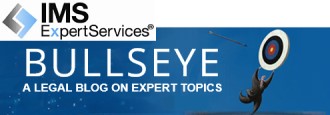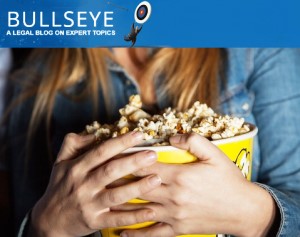Patent Exhaustion Means No Remedy for Refills |
|
Reprinted with permission. IMS ExpertServices periodically sends me e-mails that highlight recent key court cases that can significantly affect the effectiveness of expert testimony, both for the plaintiff and for the defendant. You need only scan the headlines I post daily to know the importance of effective legal representation when intellectual property (IP) is being contested. This article by Annie Dike, writing for IMS ExpertServices, discusses the concept of patent exhaustion (aka the 'first-sale doctrine') as it applies to copyrights and patents. Not being a lawyer, I needed to do a little additional research on it to comprehend what was being stated. International sales complicates an already muddy subject, so much so that even the U.S. Supreme Court could not agree on its interpretation when deciding cases involving a third party's right to re-sell a product which had been previously legally purchased. Ms. Dike's example pertains to a printer company seeking to prevent another company from re-filling and re-selling its ink cartridges. Another prominent example I found in a search involved well-known technical book publisher John Wiley & Sons, whereby Wiley sought to prevent a Thai company from selling its books in the U.S. even though they had been purchased directly from the company, but at a deeply discounted price. It's a real mess, and really highlights how codified law's interpretation by judges often ignores original intent and exploits loopholes and inexactness in language. Patent Exhaustion Means No Remedy for Refills Posted by Annie Dike, Esq. "I'll take a bag of M&Ms, some nachos and the Butter-Rub Popcorn Tub." Let's talk about this popcorn tub. Assume you invented and patented it and it's the most popular theater popcorn tub in the U.S. You designed it to fit perfectly in the viewer's lap. It keeps the popcorn warm for a "guaranteed hour" and it comes with a built-in patented butter mister. That's one primo tub. You've made a bit of a small fortune selling it to theaters all over the country as well as overseas - plus it states on the bottom of the tub that the customer "agrees to return the empty tub at the theater for recycling." You feel pretty ingenious having not only set up a way to make millions on the first round of sales but many millions more by monopolizing the market on your refurbished tubs through the post-sale restriction. But, here's the rub on your tub: according to the Federal Circuit, your patent may not allow it. Why? Your patent has been exhausted. This is the question the Federal Circuit intends to answer in allowing en banc briefing in the Lexmark International v. Impression Products matter. Lexmark, a global leader in printing cartridges, accused Impressions of patent infringement for refurbishing and reselling used Lexmark printer cartridges. Lexmark claimed although it authorized the initial sale of the cartridges ─ both nationally and overseas ─ its patent allowed it to block importation of cartridges back into the U.S. and prevent refill of the cartridges as a violation of the post-sale restriction. You see, much like your patented tub, the outside packaging of Lexmark's cartridges state that the customer "agree[s] to return the empty cartridge only to Lexmark for recycling." It seems like a perfect plan: "This is my tub. I invented it. I am the only one who can sell it ─ the first time new or the fifteenth time used ─ to theaters in the U.S. Only me. Ever." It's definitely a commendable strategy but, according to those in the refurbish/resell business, it's just too much. In the Lexmark litigation, Impressions argues, similar to copyright law, that a first-sale extinguishes the patent protection. In other words, once the product is sold, the purchaser can do whatever he wants with it. Meaning, after a happy moviegoer buys your tub, he can use it however he wishes. He can wear it as a hat, make it a planter and grow a miniature bonsai tree, or he can refurbish it, fill it with popcorn and resell it in the U.S. or abroad. We know this as the "first-sale doctrine." But what about the customer's agreement to leave the tub at the theater for recycling? Surely that's got some teeth? Those in the refurbish camp would say: "Of course, but that's a breached contract not a patent infringement." If it was the customer who broke her word by stuffing empty popcorn tubs in her over-sized purse and sneaking them out of the theater, it would seem the remedy would be to pursue Handsy Hilda with a breach of contract action. I can't say that's going to help strengthen customer relations or bode well for your continued popcorn tub business though. In all, it seems the Federal Circuit is leaning toward patent exhaustion. The two primary questions it intends to answer with the en banc briefing will be whether to overrule standing yet conflicting precedent that: 1) found authorized sale of a patented product overseas did not exhaust the U.S. patent thereby allowing the patent holder to prevent import and sale of the product back in the U.S. and 2) held post-sale restrictions on patented products prevent exhaustion and permit the patent holder to prohibit refurbishment and resale of its products in violation of the restriction. If the court over-turns the precedent, the previously-sharp patent sword you had for your tub may be worn to a nub. If not, the determination of what constitutes a valid and effective post-sale restriction, as opposed to a contract with the customer, may become a murky ground for new litigation.
What do you think readers? Do you believe a patent owner should be able to extend the reach of his patent with a post-sale restriction or is the sale final? And, who's wondering why we haven't yet seen a butter-misting popcorn tub on the market? --- Add comments This article was originally published in BullsEye, a newsletter distributed by IMS ExpertServices™. IMS Expert Services is the premier expert witness search firm in the legal industry, focused exclusively on providing custom expert witness searches to attorneys. To read this and other legal industry BullsEye publications, please visit IMS Expert Services' recent articles. For your next expert witness search, call us at 877-838-8464 or visit our website. Other IMS ExpertServices BullsEye and Expert Library Articles on RF Cafe:
Posted September 11, 2015 |
|


